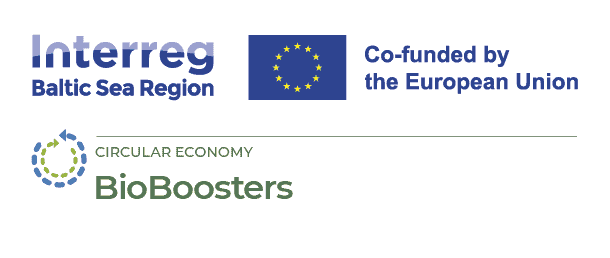
The story about Karlstad Energi Hackathon: Pioneering Wine Cork Recycling in Sweden
15 January 2025
On December 5–6, Karlstads Energi hosted an innovative hackathon in Sweden, aiming to tackle an unconventional challenge: finding a sustainable way to give used wine corks a new life. An initiative contributing to the circular economy in the region. The winner was ReKorek from Poland meaning a new international collaboration.
How did the hackathon contribute to circular economy?
Karlstads Energi is a large, municipally owned company specializing in energy and recycling. They constantly seek to enhance recycling processes by sorting waste to increase its value. For years, they have successfully collected materials like paper, metal, and plastic etc. separately to be repurposed into new products.
Going into this hackathon they wanted to find a way to make used wine corks into new products with the aim to increase the circular economy. By conducting a collection system of corks in the municipally of Karlstad, Karlstads Energi also hope to inspire other municipalities in Sweden to do the same. This would mean some of the billions of wine corks used to seal buttles each year could create a higher value and at the same time benefit sustainability by being recycled.
What did the international collaboration mean for the hackathon?
Thanks to the international collaboration within the BioBoosters network the open call generated applications with participants from Sweden, Poland, Portugal, Lithuania and France. Four teams were selected to the final hackathon days: Nordic Surface (Sweden) together with Amorim (Portugal); Reselo (Sweden) and ReKorek (Poland).
This would not have happened without the active scouting from the other partners in the BioBoosters project. They made it possible reach possible solution providers that we would not have found on our own. The winner, ReKorek, were scouted by PRO CIVIS our Polish partner.
The collaboration also gave us important knowledge and support in conducting the hackathon. Since this was the second time for us to arrange a BioBoosters hackathon, others’ know-how and experience of what worked for them and not was very valuable.
What happens now?
ReKorek are already collecting and turning used corks into new products in Poland. They have a well-established collecting system in the country. Their production is conducted on a small-scale, but it has the potential to scale up to industrial level.
Karlstads Energi need to conduct a collection system of corks in the municipally of Karlstad and aims to learn more about ReKorek’s collection methods in Poland before they start their own. The plan is then for Karlstads Energi to collect the corks locally and supply them to ReKorek, who will then produce new products. To ensure sustainability ReKorek is exploring options to establish operations in Karlstad, Sweden, to minimize the need for transportation.
What was different about this hackathon compared to the first one, and what were the key learnings?
This was the second BioBoosters hackathon organized by Paper Province, and it provided several valuable insights. Collaborating with a municipally owned company like Karlstads Energi introduced challenges, particularly regarding public procurement processes. These challenges highlighted the importance of flexibility and early planning, as the process proved more time-consuming than anticipated, causing some delays. Future hackathons together with public actors using public procurement need to be tested more and together with legal experts. Public Procurement of Innovation (PPI) could be a way forward but needs to be integrated with the hackathon process.
This time mentors were involved earlier in the process, allowing for more focused discussions and better team support. It was a testament to the importance of bringing the mentors with from the kickoff webinar, so the teams get to know them at the beginning of the hackathon process.
Additionally, the program schedule was adjusted to give the teams (solution providers) more time to process the feedback from mentors. This proved beneficial in improving the quality of their pitches.
However, the most appreciated change was the meeting for the mentors and jury added during the first of the two hackathon days. This meeting facilitated discussions about each team’s potential for success, based on both their solutions and team dynamics. Since the mentors are experienced business and innovation advisers their feedback was highly valued.
In contrast, during the first hackathon, jury members only received mentor feedback through a digital survey. That format left them with unanswered questions. This time, the survey was retained but served as a guide for discussions during the mentor-jury meeting, making the process more effective and insightful.
Will we see more BioBoosters hackathons in your region after the project?
Yes definitely! Today we are collaborating with a Canadian cluster on running a BioBoosters hackathon during 2025 and we are actively looking for new funding to run more BioBoosters hackathon in our region.
Interactive map showing pilot locations. Use the arrow keys to move the map view and the zoom controls to zoom in or out. Press the Tab key to navigate between markers. Press Enter or click a marker to view pilot project details.





